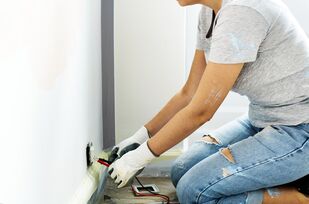
November 11th - International Energy Saving Day. This holiday is quite young, it has been celebrated since 2008, which is understandable: mankind has never had such an amount of devices that require a replenishment of electricity. Why you need to save electricity, how to do it right, and more importantly, how not to do it - the article will show.
Why you have to save energy
Since childhood, we have seen the energy saving requirement as an attempt to save personal finances. And now that many of us have begun to make good money, the temptation is great to allow "not to save on ourselves". However, saving energy is not just required to save your own money. This is a good will, a step taken by a conscious person on the way to protecting and caring for the environment.
- By saving 100 W of electricity, you save 50 kg of coal, 30 liters of oil or 30 liters of natural gas. Natural resources are limited and more and more electricity is being used around the world.
- The generation of electricity is often associated with harmful emissions into the atmosphere. We use less - we get less exhaust.
- Conserve resources for future generations. "After us even a flood" is a bad ideology for a conscious person.
17 simple tricks to save energy

- Turn off the lights when you go! It's old as the world, has had its teeth turned on its head since childhood, but it works flawlessly and for free.
- Replacing the lamps in the house with LED lamps. The hourly saving compared to incandescent lamps is 40 kopecks per lamp. This is a very profitable event indeed.
- spot lighting. The use of table lamps, wall lamps and floor lamps instead of a permanently switched on ceiling lamp.
- Cleanliness is the key to savings. With clean windows and chandeliers you save about a third of your energy consumption (compared to dirty ones).
- Light walls, ceilings, and furniture also help reduce light on a rainy day by reflecting light.
- gas stove instead of electric. Of course, replacing a working electric range with a gas range has no economic benefit. However, if you decide to buy a new oven, this aspect should also be considered.
- Washing at low temperatures can save up to 30% energy. It is not necessary to press at the highest speed. This saves you clothes and cuts your electricity bill a little.
- Use the air conditioner sparingly with the doors and windows closed.
- The refrigerator should be away from the stove or the battery.
- If your refrigerator doesn't have a No Frost system, remember to defrost it regularly.
- Heat water for tea or coffee on the gas stove. At the same time, using a kettle is more economical than using an electric stove.
- With an electric stove, the dishes in which the food is cooked must correspond to the size of the cooking zones. Remember to also cover pots and pans while cooking.
- Disconnect all devices that you are not currently using from the power supply. Phone, television, microwave, and washing machine chargers that are connected to the network continue to be meaninglessly powered. To make this process easier, place the refrigerator on a separate plate and clear the rest of the appliances from the common plate, leaving the house.
- You can switch off the iron approx. 10 minutes before you plan to finish ironing.
- Don't blow dry your hair while blow drying. This is healthier for your hair than drying it completely and can save you energy.
- Activate the energy saving mode of your gadgets.
- Set a two-tariff meter for electricity and use delayed start for washing machines and dishwashers to wash and wash dishes at night.
This is how you do not save electricity

- Deception of management companies. Counter-manipulation leads to collapse at best. In the worst case, fire and death can occur. If the deception is revealed, you will have to pay the difference between the certificate and an administrative fine.
- Replacement of a properly functioning device with devices with a higher energy consumption class. If your equipment is working properly, you shouldn't be spending money on replacements. You will receive the economic effects of such an event in about 15 years.
- Replacing functioning cabling only makes sense if it cannot withstand the increased voltage in the network. This also has dubious economic effects for prevention and energy saving. After all, wiring replacement costs quite a bit, and electricity "leakage" is not a very large amount per year. Hence, it takes 100 years to benefit from this surgery.
Conserving resources, approaching the distribution of energy (including one's own) sensibly, thinking about future generations - these are the motives of a conscious modern person. Don't rule out personal savings.


























